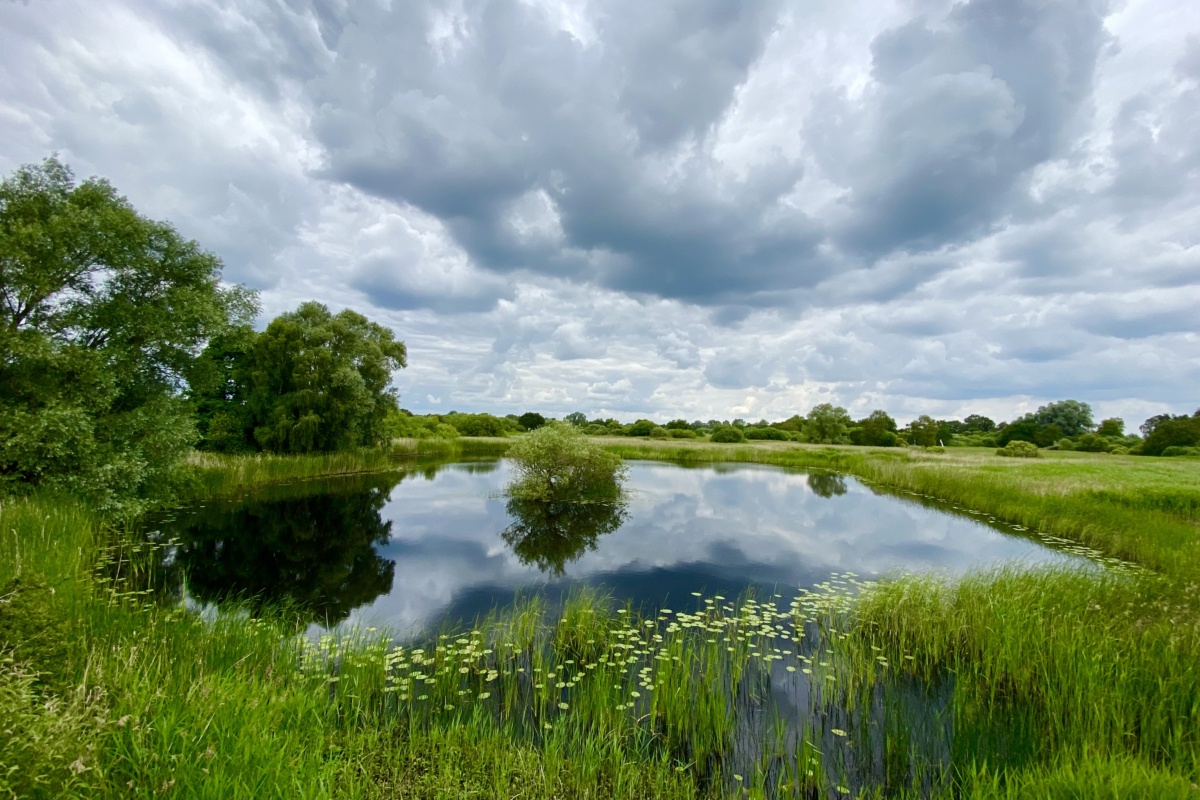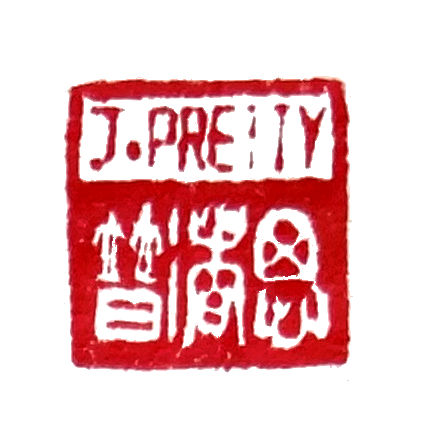[5 mins reading time]
“I first had a silver eel,” says the man to the two birds.
This is Appy.
He alone can speak Eel.
He’s a burnished fellow of the wetland ways. He wears a bowler hat and a smile, a threadbare jacket, he has the hands of a reed cutter. He’s also never seen a wheel.
He once would have stood with scythe and pitchfork. Ready to let out the guts of any a hired man who calls himself an adventurer. Improvers who set about draining their fens.
His is the old levellers’ way.
Fishing and fowling, walking on stilts, leaping over streams with poles ferruled with iron. He lives by broad lagoon and silver mere, inside the pale reeds, under the evening murmuration of starlings.
The Ravens are listening.
There is watery silence. A layer of cloud covers the land. It’s been a close night, the air still.
The two birds are great travellers. They see the underside of things, and the over.
Each day they criss and cross. They linger over the north and far to the wetter west. Today the hedges are bright, the barley fields golden.
They are Huginn and Muninn, thought and memory. They go everywhere. They search for news. They bring back the stories.
Huginn’s prone to jumping around, creating ideas, making links. Munnin likes a good sleep, bringing up the past in dreams. Huginn lives in the present, Muninn sees how past events shape, how all has led to this very moment.
Appy says: “Bought him off a man.”
“I was working in the brewery over in the river town. Before it was flooded.”
“I kept him in a barrel of water. He was mighty fond of beer. In the evenings, I took him to the Eelsfoot Inn by the old canal.”
“That mischievous monkey, he was right proud of company. If you turned away, he would drink up all your beer. When that eel had grown so old, more than a hundred, he came to die. So, I tanned his skin and made him into two pairs of braces.”
“Ever since then, the braces always pull me into any pub if I am passing. There’s nothing for it, I have to go in. Then they pull me into the fens and meres if there are eels about.”
“That eel chap, my good friend, never got to swim home to the Seaweed Sea.”
And this is what Appy says too of the eels.
“They used to be helped by the turtle fellows, I’m told. Out on the far side of tomorrow. Not many of them left either.”
That trickster Merlin, the wise old goat with oak and chestnut leaves in his hair, he had said in the time before Guthlac was beating away the island devils, he had said cities would one day be surrounded by water, and creatures would come to walk the streets. There would be ruins, trees growing fast through the roofs of the builders and the breakers.
“We’re just like the old boys,” says Appy.
Well, wild has come again, animal and bird and dragonfly, and the folk slid deeply there inside the land.
It is said the Fennish People have been crafting new wilds. Had they perhaps damaged engines, blocked and stoppered up the field drains? Had they played a hand in switching back the land?
The Ravens recall, no flowers bloomed after the times of the improvers. No dancers danced.
Yet now, look at these sedgelands and meres, this reedy homeland. Once shrunk, now grown rich again, those bottomlands draining rivers from thirteen counties. The salty tide washes in further now, south over broken sea and river walls, soaking again the peat and sunken soils.
These are not the meres of beasts, nor of any other bugbear of the deep, those spirits that hook you, children are warned, pull you in and drown you, those freshwater mermaids.
These days there is ruff and spoonbill, avocet and bittern, snipe and geese and numbers of waders. There come from certain hidden places, the bugling calls of crane. And homes for the eel, the whole watery interlace, pike and burbot, lamprey and turbot. There is otter and wild pig, and deer who swim with antlers held up high and dry. There is lapwing and lark above, there are red mounds of the old salt makers and their fires.
At night, the starlight can be gorgeous in the pale transparent air.
Appy continues his report, the Ravens are attentive.
“Hereward, he who led the Fen Tigers, who lured the bad king’s men into the marsh, he set the reeds afire. There was Tom Hickathrift the giant killer, famed defender of the Gyrwe People, the resistance movement of the marsh. They hid, only their heads out of water, could sink below to breathe through just a reed.”
“And great assemblies too, over at the Elloe Stone where the Brethren of the Water wrote the Fen Code. And the Fisherman’s Code. There are one hundred and eight rules on looking after the commons, ensuring nature’s provenance.”
Back home in the east, the Ravens slip through a grove of dense hawthorn and briar, past bushes of sloe-thorn. Ahead is the wooden door with iron bolts and hinges. The walls on either side are capped with green turf.
This hall is Gladsheim, the home of joy. They slip through a hole in the roof. It is quiet and cool. There are no golden frames nor posts of silver, here in Woðin’s house and hall. Each room seems shaped by roots.
Woðin has forty-nine names. He’s still the All-Father.
Yet there’s a lot to fear, these days. Ragnarök is coming along.
The Ravens pass along a low passage, step into the light.
Woðin’s waiting in the walled garden, by beds of flowers, herb and vegetable. By the pleached orchard apple trees and the butterfly farm.
The Ravens murmur their news to the old god. About Appy of great wetlands.
And the eel people. How they haven’t been able to find their way out or back. No one knows what are the obstacles.
Woðin can see this.
Some people there are turning back one tide, creating another. They have made their own kind of progress, the land wet and fertile again. Flag Fen, Holme Fen, Woodwalton Fen, Whittlesea Mere, Wicken Fen, all joined up in one great fen.
Alas, many gaps in the web remain. Many snares.
 Jules Pretty
Jules Pretty

